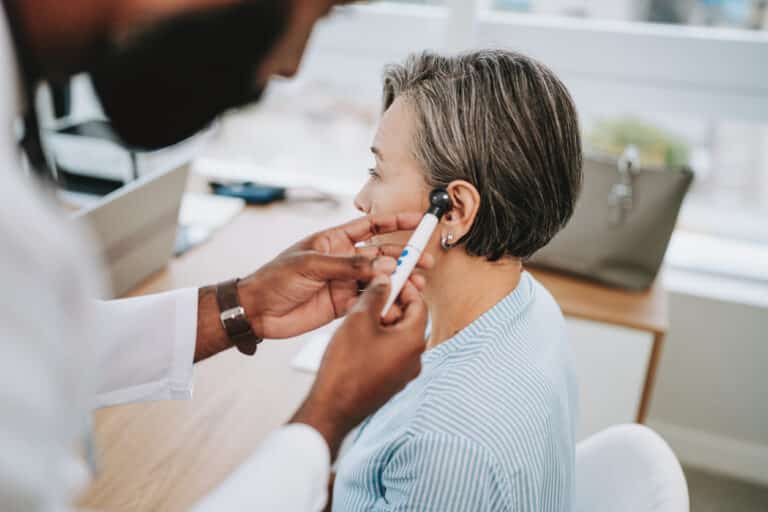If you’re experiencing changes in your hearing or simply want to take a proactive approach to your hearing health, visiting a hearing specialist is a smart first step. You wouldn’t be alone, as 15% of American adults 18 or older have reported some trouble hearing. Knowing what to expect during your visit can make the experience smoother and more comfortable.
Preparing for Your Appointment
Before your appointment, it’s helpful to think about your hearing concerns and how they affect your daily life. You might want to make notes about:
- When you first noticed changes in your hearing
- Situations where hearing is most difficult (like on the phone or in noisy cafes)
- Any ringing, buzzing or pressure in your ears
- Your medical history, including ear infections, injuries or noise exposure
Most offices also encourage you to bring a family member or close friend. Having someone with you can offer extra support and help you remember important information discussed during the appointment. They can also take notes and ask clarifying questions.
What Happens During the Visit
When you arrive at your hearing specialist’s office off N. Liberty Street, you can expect a warm, welcoming environment focused on comfort and education.
The appointment typically includes several key steps:
- Conversation and medical history review: The specialist will ask questions about your hearing concerns, overall health, lifestyle and any symptoms you’ve been experiencing.
- Ear examination: Using a special lighted tool, the specialist will look inside your ears to check for any abnormalities that might affect your hearing.
- Hearing tests: You’ll undergo a series of hearing tests, usually conducted in a soundproof booth. These tests measure your ability to hear different tones, volumes and speech in quiet and noisy environments.
- Results discussion: After testing, the specialist will explain your results in clear, easy-to-understand terms. They’ll go over your hearing profile and discuss whether any treatment or hearing assistance is recommended.
Appointments are not rushed. Specialists take the time to answer questions thoroughly and ensure you leave with a full understanding of your hearing health.
Possible Next Steps
If the evaluation shows that you have hearing loss, your specialist will walk you through the available options. Some common recommendations might include:
- Hearing aids, customized for your specific hearing needs
- Communication strategies to make conversations easier
- Follow-up care, including hearing aid fittings, adjustments and maintenance
- Referrals to other specialists if any medical conditions are suspected
Hearing clinics typically offer a wide range of hearing aid models, from discreet in-the-ear options to advanced devices with Bluetooth® capabilities. Your hearing specialist can work with you to find the best options for your lifestyle.
Visiting a hearing specialist is a positive step toward protecting your hearing health. To schedule your first appointment, contact Southwest Idaho ENT today.



